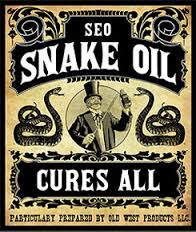Measurement and Evidence versus Sales and Marketing
 PIn The Guardian’s How statistics lost their power – and why we should fear what comes next, sociologist William Davies asserts:
PIn The Guardian’s How statistics lost their power – and why we should fear what comes next, sociologist William Davies asserts:
“The ability of statistics to accurately represent the world is declining. In its wake, a new age of big data controlled by private companies is taking over – and putting democracy in peril”
He points out that 68% of Trump supports in the U.S. distrust government economic data, and 55% of the U.K. population doesn’t believe the government immigration numbers. He suggests that this is in part due to the coarseness of measures such as GDP, which may measure overall economic success or progress in some sense, but fails to adequately portray the experience of specific groups and individuals. Davis makes the argument that these failures of measurement are a manifestation or perhaps even a cause of post-truth politics. And he raises cautionary flags on two points: (1) That in the world of big data, rather than statisticians formulating questions and then carefully designing survey instruments to collect data, all sorts of amateurs are using data mining techniques to draw all sorts of assertions; and (2) That there is a danger that companies like Facebook now have the most comprehensive societal data, but no motive to share it for the public good.
I fear Mr. Davies suffers from a combination of his own biases, including a certain nostalgia for the elitism he portrays as merely a perception of populists. He laments the view that those who argue policy based on the numbers are undemocratic elitists.
From one perspective, grounding politics in statistics is elitist, undemocratic and oblivious to people’s emotional investments in their community and nation. It is just one more way that privileged people in London, Washington DC or Brussels seek to impose their worldview on everybody else. From the opposite perspective, statistics are quite the opposite of elitist. They enable journalists, citizens and politicians to discuss society as a whole, not on the basis of anecdote, sentiment or prejudice, but in ways that can be validated. The alternative to quantitative expertise is less likely to be democracy than an unleashing of tabloid editors and demagogues to provide their own “truth” of what is going on across society.
But the alternative in which “tabloid editors provide their own truth” is a straw man in this argument. It’s arguably a real problem, but not one that has much of anything to do with the failings of substance or confidence in measurement or statistics.
And he is far too charitable in saying
As indicators of health, prosperity, equality, opinion and quality of life have come to tell us who we are collectively and whether things are getting better or worse, politicians have leaned heavily on statistics to buttress their authority. Often, they lean too heavily, stretching evidence too far, interpreting data too loosely, to serve their cause. But that is an inevitable hazard of the prevalence of numbers in public life, and need not necessarily trigger the type of wholehearted rejections of expertise that we have witnessed recently.
Yes, politicians do stretch evidence and cherry pick, but their challenge to the authority of experts arises very simply from disagreement with the their conclusions. The methods employed by modern politicians are not those of evidence-based reasoning. They are the those of sales and marketing, of persuasion. And these have been operating in a post-truth world since the days of P.T. Barnum and the first snake oil salesmen. And furthermore, as we have come to understand the many cognitive biases that influence human behavior, new techniques have been developed to learn which lies will be most readily believed, which propositions will most strongly evoke fear, and how best to play on peoples’ insecurities.
But the forces of light have at their disposal the same tools as the forces of darkness, and must adapt. At it’s worst, sales and marketing is the tobacco seller persuading you that smoking is glamorous, or the politician selling racism. At it’s best it is the mechanism of the efficient market that connects people with the products, services, and public policies that enhance and affirm their lives.